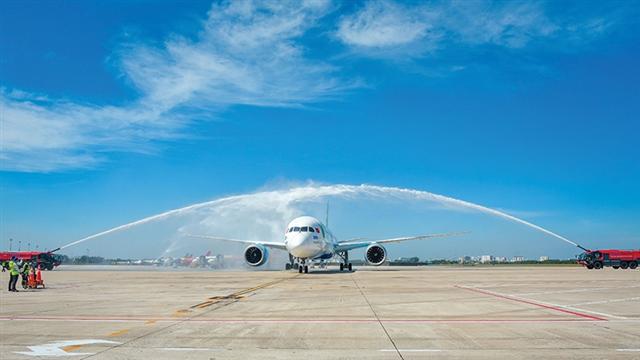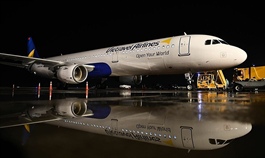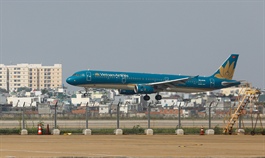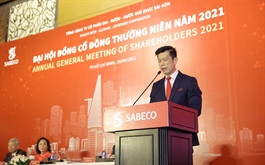Questions over air titans’ funding plans
Questions over air titans’ funding plans
While Vietnamese airlines are looking at fundraising on the stock market as a way to shelter from financial storms, the possibilities of making it a success remain narrow.

Airlines are looking at new ways to raise funds after a terrible situation for aviation in 2020
|
According to Pham The Anh, chief economist at the Vietnam Institute for Economic and Policy Research, airlines plan fundraising on the stock market as favourable conditions in the stock market are in reach. This may therefore be a good solution for them to access more financial sources for operations amid the pandemic. However, many experts warn that it will not be easy for air carriers to mobilise tens of trillions of VND in the stock market at this time because their tickers are simply less attractive than others.
In a specific case, the Ho Chi Minh City Stock Exchange decided to issue warnings to HVN, the ticker of Vietnam Airlines, from April 15 due to business losses. An expert at FPT Securities told VIR, “HVN has fallen in recent days due to serious concerns over COVID-19.”
Also, VJC – the ticker of Vietjet – also saw a downtrend from over $5.66 per share on April 22 and $5.53 on April 27 to $5.47 on April 28.
Bamboo Airways is currently selecting an international auditing company to prepare for its initial public offering (IPO) in the United States, planned for the third quarter.
Chairman Trinh Van Quyet, also the chairman of private-run property developer FLC Group, said that the airline aims to raise $200 million in the IPO by offering 5-7 per cent of stake at a starting price of VND60,000-80,000 per share ($2.60-3.47), thus increasing its market capitalisation to $4 billion.
“The IPO in the US is part of Bamboo Airways’ efforts to expand its services globally,” Quyet said. “This is the latest development of the airline and the IPO on a local stock exchange is a backup plan, depending on market conditions.”
In similar moves, Vietjet offered nearly 18 million treasury shares on the Ho Chi Minh Stock Exchange from March 30 to April 28 to increase its working capital. Elsewhere, national flag carrier Vietnam Airlines, in which the state holds 86 per cent, has received government approval to issue additional shares worth VND8 trillion ($348 million) regardless of the issuance schedule.
Together with issuance plans, airlines are seeking government support policies on loans after Vietnam Airlines earlier received refinancing loans worth VND4 trillion ($174 million) with interest rates for refinancing loans set at zero per year.
Specifically, Vietjet seeks a loan of VND4-5 trillion ($174-217 million) with a term extending to 2023 and lending rate of 4 per cent annually. In the meantime, Bamboo Airways also seeks a loan of VND10 trillion ($435 million).
While Anh said that the government should have similar credit supporting policies for airlines to ensure equal treatment, others suggested careful consideration to ensure fair treatment, as aviation is not the only sector badly hit by COVID-19.
As a result of the uncertainty, airline expansion and restructuring plans are inevitably placed on the back-burner. Market analysts forecast that the struggling sector will start recovering at the end of this year, with expectations pinned on regular international flights for those with “vaccine passports”. But numerous obstacles abound in terms of adequacy of evidence, effectiveness, technology, and vaccine efficacy.


























